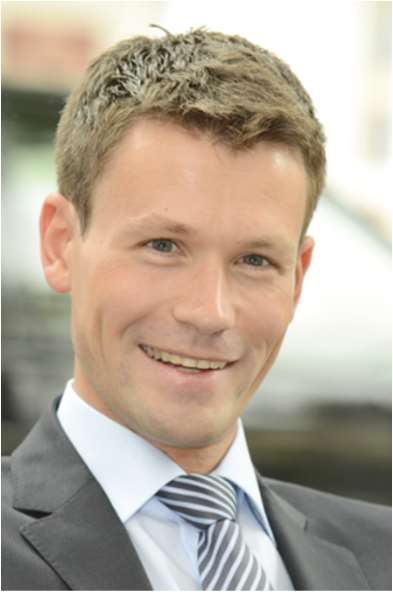Advisory Board shall provide non-binding strategic advice to the owners/Board of Directors or Management of the group. Main aim of Advisory Board is to benefit from the knowledge of its members and offer to the Company innovative advice, guide or strategic direction on raised issues.
Advisory Board does not vote on corporate matters of bear legal fiduciary responsibilities.
The Advisory Board is supposed to be meet 2 – 3x annualy.
Main roles and responsibilities of advisory board members:
- developing an understanding of the business, market and industry trends
- provide “wise counsel” on issues raised by owners/directors or management
- provide unbiased insights and ideas from a third point-of-view (not involved in the operation of the business)
- encourage and support the exploration of new business ideas and business & academic collaborations
- act as a source expert advice for executives
- impose challenges on directors and management that could improve the business
Members
 Stanislav Kmoch, Ph.D.
Stanislav Kmoch, Ph.D.
Mr. Stanislav Kmoch, Ph.D. holds a Ph.D. at First Faculty of Medicine at Charles University in Prague. He is heading the Head of research programme Development of Therapeutic and Diagnostic Procedures in BIOCEV. His scientific career is at biochemist, Institute of Inherited Metabolic Disorders General Faculty Hospital, Prague. Main interest in inherited disorders of mitochondrial and peroxisomal fatty acids ßoxidation metabolism from 1989 till 1996.From the year 1996 he is a present researcher in the Institute of Inherited Metabolic Disorders, Charles University 1st School of Medicine, currently head of the group of medical genomics. The main research findings are Identification of TMEM76 as a gene causing MPCIIIC, identification of TMEM70 as a novel factor of ATPase biogenesis, identification of renin gene mutations in autosomal dominant nephropathy, identification of DNAJC5 as a gene causing Kufs disease, Identification of OATP1B1 and OATP1B3 mutations as a cause of Rotor syndrome, identification of genes causing GAPO syndrome and Medullary cystic kidney disease type 1. He gained awards of the Minister of Health of the Czech Republic for scientific achievements in 1999, 2007 and 2012. He published 23 publications in last 5 years.
 RNDr. Jaroslav Loucky
RNDr. Jaroslav Loucky
RNDr. Jaroslav Loucky is a Laboratory Director at IMALAB s.r.o. since 1995. He worked for Bata Hospital in Zlin as an Analyst in the Imunochemistry Department of Nuclear Medicine and after 4 years became a Head of Imunochemistry in this department. He is a Managing director and co-owner at Imalab s.r.o., MDgK-plus spol. s r.o., MEDEOR laboratoře s.r.o., Lab Med spol. s r.o., MZ – BIOCHEM, s. r.o., Mediekos Labor, spol. s r.o. and PREDIKO, s.r.o. Loucky holds his RNDr. in Inorganic chemistry - research on reactivity of amides and other nitrogen compounds at J. A. Purkyne University in Brno. He´s becoming a professor in a field of Biochemistry and Pathobiochemistry at Second Faculty of Medicine at Charles University in Prague now. He regularly attends the Annual Meeting AACC in the USA. He attended an Intensive Course of Down Syndrom, St.Barth.Hospital, London, Wolfson Institute of Preventive Medicine, London in UK in 2001, 2003, 2015, 2016. Loucky attended a short term in Integrated screening at Brown´s University, Providence in the USA and a short course in Prenatal screening: Fundamentals and Innovations, IPMMS in Portland in the USA. He had 15 lectures from 2011-2014. He can also be proud of his 31 publications in reviewed journals. His professional organizational activity was an introduction of non-invasive testing of the most frequent chromosomal aberrations of the fetus into clinical practice in the Czech Republic. He operates in the management of several medical facilities, with the emphasis on finding new possibilities of using laboratory methods in clinical practice. Long-term improvement of prenatal testing of pregnant women based on interdisciplinary cooperation between biochemistry, molecular biology and sonography.
 Andreas Keller, Ph.D.
Andreas Keller, Ph.D.
Prof. Dr. Andreas Keller heads the Chair for Clinical Bioinformatics at the medical faculty of Saarland University and the Saarland Informatics Campus since 2013. Keller studied computational biology at his alma mater. Likewise at Saarland University, Keller did his Ph.D in Computational Biology and qualified as a professor in Human Genetics. Before joining the university, Keller was VP for Biomarker Discovery at the Heidelberg-based company febit GmbH, where he operated one of the first German NGS labs. Following his time at febit, he was director for diagnostic innovation at the Siemens Healtineers Headquarter in Erlangen, Germany, where he was responsible for disruptive developments in molecular diagnosis and healthcare IT systems. In 2016, he co-founded the molecular diagnostic company Hummingbird Diagnostics in Heidelberg and Boston, a company with focus on bloodborne non-coding RNA biomarkers for early stage lung cancer, neurodegenerative disorders (Alzheimer’s and Parkinson’s Disease) as well as heart failure. Currently, he is also the lead scientist at Hummingbird Diagnostics and consultant for different other bio- and med-tech companies. Keller’s Research focus is the development of novel multi-parametric diagnostic tests using machine learning and deep learning techniques. In particular, to make complex test results understandable and explainable for clinicians and patients becomes more and more important in Clinical Bioinformatics. Another example in addition to the non-coding RNA research are methods to predict resistance against antibiotics in infectious diseases from next-generation sequencing data. For this project - that is currently commercialized with Curetis AG - Keller was honored by the "Germany - Land of Ideas" award in 2017. Keller is co-author of 190 peer-reviewed research manuscripts that get cited 1,000 times per year. He is also innovator on 76 patent filings and granted patents in the area of biomarkers and computational approaches for diagnosing diseases and predicting the therapy response.
